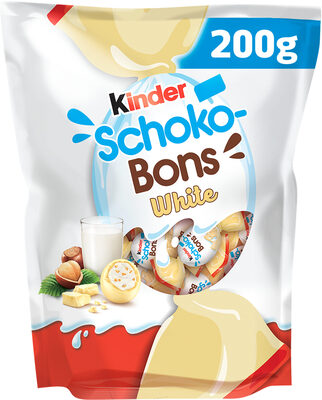
Barcode: 8000500289877
DOUBTFUL
📝 Reason: This product contains ingredients requiring further verification. Their Halal status depends on undisclosed processing details and source materials that need clarification.
🏷️ Category: Snacks, Sweet Snacks, Cocoa And Its Products, Confectioneries, Chocolate Candies, Bonbons
📄 Certificates: Green Dot, Vegetarien
Ingredients:
Details
Understanding the Halal Status of the Product
The product associated with barcode 8000500289877 raises some concerns regarding its Halal status, which is ‘DOUBTFUL’. This classification indicates that certain ingredients require further verification based on possible undisclosed processing details and source materials. Let’s delve deeper into the ingredients and E-numbers that constitute this product to clarify its Halal integrity.
Ingredients Breakdown
- White Chocolate 50.5% (skimmed milk powder, cocoa butter, sugar, clarified butter, emulsifier lecithins (soya), vanillin)
- Sugar
- Skimmed Milk Powder (13.5%)
- Palm Oil
- Hazelnuts (5.8%)
- Clarified Butter
- Gum Arabic (Glazing Agents)
- Shellac (E904)
- Glucose Syrup
- Emulsifier Lecithins (soya)
- Flavoring
- Vanillin
- Total Milk Components (36%)
- Total Cocoa Components (16.5%)
Detailing Each E-Number and Ingredient
To assess the Halal status, let us examine the key ingredients:
1. White Chocolate 50.5%
This mixture comprises skimmed milk powder, cocoa butter, sugar, clarified butter, lecithins (from soya), and vanillin. Each of these components alone is considered permissible in Islam, but the blend requires confirmation about the source and processing practices.
2. Cocoa Butter
Cocoa butter is derived from cocoa beans and is Halal compliant.
3. Sugar
Sugar is typically Halal, depending on its source. Generally, it maintains its Halal status unless mixed with non-Halal substances.
4. Clarified Butter
This butter is Halal if derived from lawful sources.
5. Emulsifiers (Lecithins from Soya)
Soy lecithins are permissible in Islam, making this ingredient safe for Halal considerations.
6. Vanillin
Vanillin is a flavoring agent that can also be Halal, contingent upon its extraction method.
7. Skimmed Milk Powder (13.5%)
This ingredient is permissible, assuming it originates from Halal sources.
8. Palm Oil
Palm oil is permissible in Islam, usually raising no concerns for Halal certification.
9. Hazelnuts (5.8%)
The Halal status of hazelnuts needs clarification surrounding their processing and certification.
10. Shellac (E904)
This is a surface coating agent derived from the secretions of the lac insect. It has a controversial status due to its origin from an insect, which might conflict with Halal standards.
11. Glucose Syrup
Typically, glucose syrup is Halal unless sourced from questionable ingredients.
12. Gum Arabic
This is a natural thickener and is often Halal compliant.
Category and Brand Context
This product falls squarely into the Snacks, Sweet Snacks, and Confectioneries categories, appealing to those who enjoy chocolate-based treats. However, the product does not currently list a specific brand which may affect consumer confidence.
Conclusion
In summary, while many of the ingredients in this product are generally acceptable under Halal guidelines, the presence of shellac brings doubt, and the origins of other components, such as hazelnuts, remain unverified. Therefore, it’s crucial for consumers to seek more information about this product’s sourcing and processing methods to make an informed decision about its Halal status.
